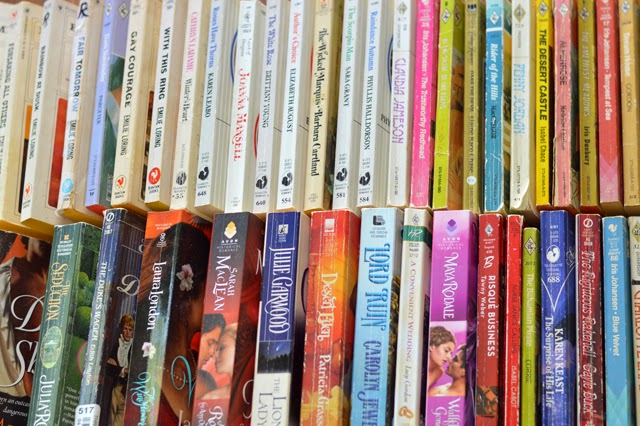Genre fiction of any sort has a certain power. It’s the power to sneak serious thinking into “mindless, fluffy, badly written” books. It’s what part of what Very Serious Literary People do not understand about why smart people sometimes read “dumb” books. Part of it is escapism (which I don’t view as a derogatory term): the ability to turns our brains off for a while and coast. But not every work of genre fiction, including not every work of romance, is best understood that way. It’s the ability to get a reader to let down whatever guards they have, let go of whatever biases, prejudices or preconceived notions they have about how the world works and experience difficult topics and themes from a perspective of non-judgment. Even if they don’t realize they’re doing it. When an author really grabs you and pulls you into a story, you accept all sorts of things that your rational mind knows are “not true”.
In science fiction, this power comes from shifting the setting of the story from our world to another, even if it’s only a variation in time, space or history. In fantasy, the power comes from concocting an entirely new world based on different physical rules and social mores. Sometimes these are exaggerated versions of ours, like in Margaret Atwood’s The Handmaid’s Tale. Sometimes they establish behaviors as normal things that are seen or
were seen as “abnormal” as in the case of the same-sex relationships in Ursula LeGuin’s Left Hand of Darkness. I’m sure mystery and horror have their own powers considering people like Dorothy Sayers, who wrote mystery, and Stephen King, who writes horror, have never struck me as stupid people or bad writers. I don’t read those genres (I’ve read other things by both authors), but they must have a similar attraction given how many smart people I know do.
So what about romance? It’s tempting to ascribe some of the same power of fantasy to paranormal romance and that of alternate history to Regencies and Victorians. However, no matter the sub-genre, romance’s defining characteristic and special power is the happy ending.
The happy ending allows romance to explore difficult topics from a safe and comfortable distance. The 12,000 of us who follow Victoria Dahl on Twitter are keenly aware of her stance on sexism, but she presents her positions much more widely and much more subtly through her books. She’s able to tackle issues of divorce, infidelity, spousal abuse and fears about aging within a context that keeps the reader feeling secure because we know no matter what happens, by definition, everything is going to be alright in the end. In the hands of a writer of literary fiction, these and other topics might simply prove too serious or too terrifying for a reader to face down, particularly one who has personal experience with these issues.
In the hands of writers like Dahl and many others, these problems are not just a reason to keep the couple apart for 300 pages. Mainstream romance reaches readers of all kinds of backgrounds, world views and political stripes. People who might view addiction as a moral weakness, kink as a mental illness or verbal abuse as a just and reasonable parenting technique get a different perspective. Now, sometimes this breaks down and readers complain about couples who don’t deserve their HEA; sometimes for reasons of stupidity or cruelty on the part of a character, but sometimes for how the writer handles these larger societal issues.
I don’t want to make it sound like every writer is out to publish moral and political screeds in the guise of love stories. The amazing thing about romances is that they evince so much empathy for all sorts of different people with all sorts of different failings. Many of them do it from within our cultural framework. Though many characters display the defining sarcasm, snark and smarm of our age, writers and readers of romance are able to slip into a world of eternal optimism and look at it from that perspective for a while, even if it isn’t normally our default setting.
Happily ever after can be a means of exploring topics and themes which might otherwise seem too tough or too trivial from within the context of a story in which the anxieties of ultimate failure, rejection and death have been removed. It’s romance’s super power.


